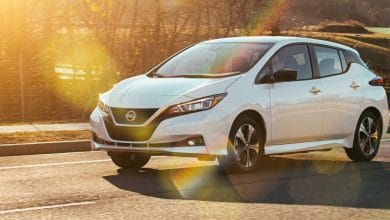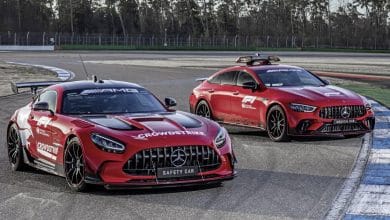Techno Chronicle | Hyundai robots to the rescue

In its native Korea, the Hyundai company has worked on a concept to support businesses in a context of labor shortages that are rampant everywhere. Fully electric autonomous robots come to the rescue, time to do a delivery job that will relieve many companies.
The automaker recently launched two pilot delivery service programs that use the vehicles to deliver goods to two test locations, a hotel and a residential and commercial complex, both located outside Seoul. In terms of technology, this is a great inspiration for the Korean autonomous cars of tomorrow.
Contents
A futuristic-looking device
At first glance, Star Wars enthusiasts will all have the same impression when they see Hyundai’s robot, namely that it looks suspiciously like R2-D2, only bigger.
In order to be practical for delivery, the Korean manufacturer has equipped it with a storage compartment at the level of the “abdomen”, let’s say. This is based on a PnD modular platform (plug and drive) which allows it to pivot on a single wheel and in all directions.
So the robot moves using this wheel, smart steering, braking system, electric drive and suspension. To complete the portrait, it is equipped with a digital screen where information intended for customers who have ordered can scroll (it can even be read to them with an adapted voice). Finally, the machine is equipped with sensors and a camera that fully ensure its autonomy. Equipped in this way, our robot is ready to go.
Room service
For the sake of the tests carried out by Hyundai, the robot was used to provide room service at the Rolling Hills Hotel, a 4-star establishment. Every evening, from 8 p.m. to 10 p.m., hotel guests can call on him to have food and drinks delivered. People place their order using an app, then use the popular Kakao Talk messenger (free and super popular across Korea) to track their order’s journey in real time.
Even better, the robot avoids all obstacles in its path and knows how to determine the number of people going up in an elevator. He can even assess if it is too much! If the cabin is crowded, he will take the next elevator.
Finally, when he arrives at the room, he waits for the door to be opened for him and, as soon as the customer appears in front of him, he in turn opens his empty tray to deliver the order.
shopping at the mall
Hyundai has also conducted another test, this time in a residential and commercial building in Seoul, in collaboration with one of Korea’s largest online food delivery companies.
This new robot comes into operation as soon as a customer places an order online. Particularly resourceful, he goes shopping. He goes to the shopping center of the building, he finds the article desired by the customer himself and delivers it to his front door. Still not a bad machine!
For the moment, we are at the testing stage, but it is already planned that we will manufacture other delivery robots, that we will extend their services and their hours of availability and that we expand their sphere of activity to reach large commercial areas, where delivery services are useful to get closer to customers.
A mix of science fiction and burlesque
When we imagine it all, with their autonomous driving and their ability to avoid obstacles, we can find a slightly comical side to these delivery men who shop for us. But if these robots can reduce delivery times, free up time in our overloaded schedules while being safe and, moreover, if they can thus offer assistance to both consumers and entrepreneurs, it’s hard not to appreciate it and see a great use for many of us.
You will have understood that for the Hyundai company, the two robots are only precursors, pioneers of a broader strategy on the part of the car manufacturer which aims to win the market for autonomous technology, an area which is currently developing in high V speed.
The company has already made significant investments in the development of autonomous cars and robots. Following this path, its delivery service becomes an opportunity to test and refine its technology in a real environment.
At the end of the day, it’s still interesting to see car manufacturers developing new utilitarian transport instruments and taking inspiration from them for the self-driving cars of tomorrow. Resolutely, the automotive sector is increasingly presenting itself as a flagship industry in technological development.











